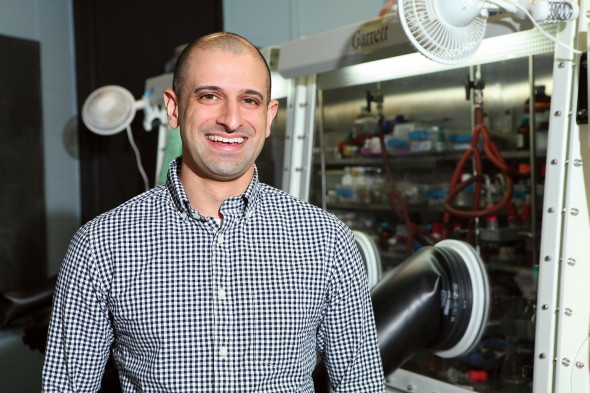Producing industrial chemicals without precious metals
Producing bulk amounts of industrial, commodity chemicals requires catalysts that help facilitate joining two or more molecules of what are known as “feedstock chemicals” together. Often, these catalysts contain precious metals, such as rhodium, one of the rarest metals on earth, which has a price tag to match.
A new $525,000 grant from the Department of Energy to the University of Illinois Chicago will enable researchers to explore new ways of making chemical products.
“Right now, precious metal catalysts are required for many chemical processes, but continuing to use them isn’t sustainable,” said Neal Mankad, associate professor of chemistry at UIC and the principal investigator on the grant.
Mankad and colleagues will investigate new strategies to incorporate small molecules including nitrous oxide, hydrogen and carbon monoxide into organic feedstocks like alkenes and alcohols. One of the strategies they will look at is using heterobimetallic catalysts, which use two different metals to catalyze a reaction instead of one precious metal-containing catalyst. They will use big data-driven analyses to modify their approach and to improve the efficiency of their novel catalysts.
“We will be looking closely at how chemical structure impacts the reactivity of the new catalysts and that might impact the chemical processes that are required to create these value-added products,” Mankad said.
Written by Sharon Parmet

